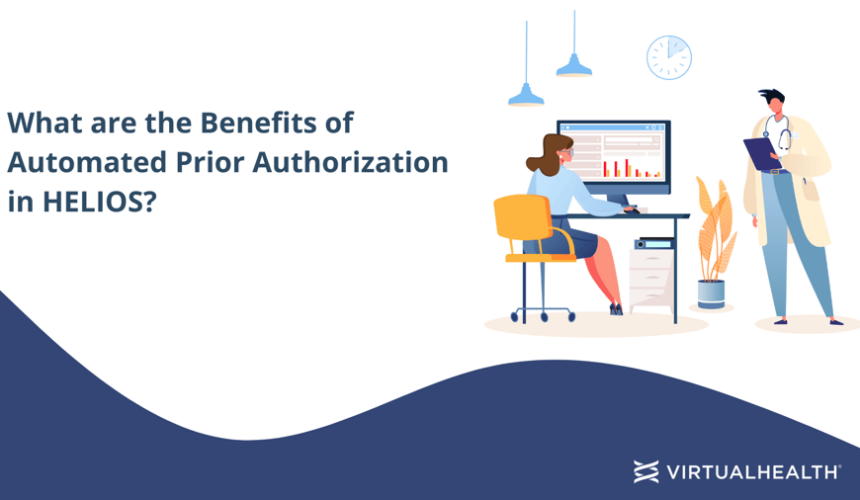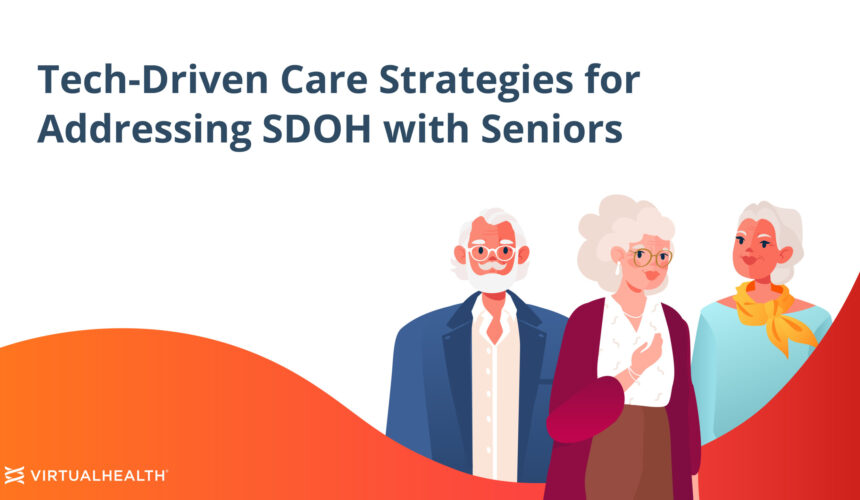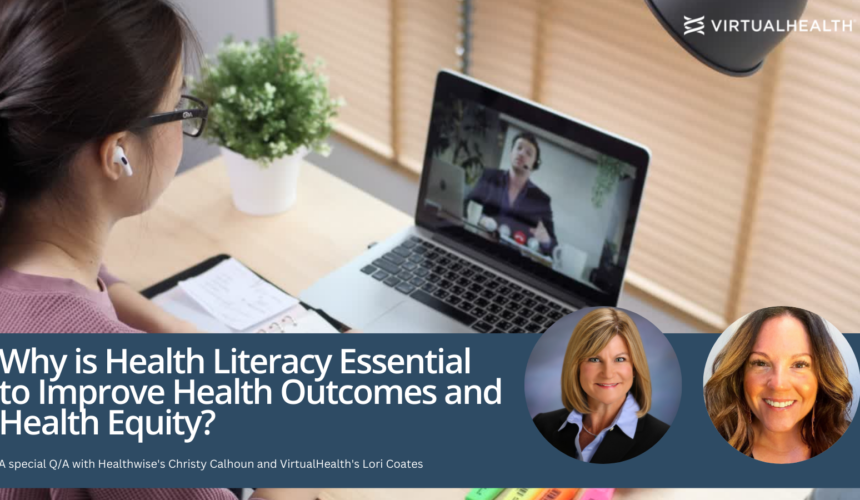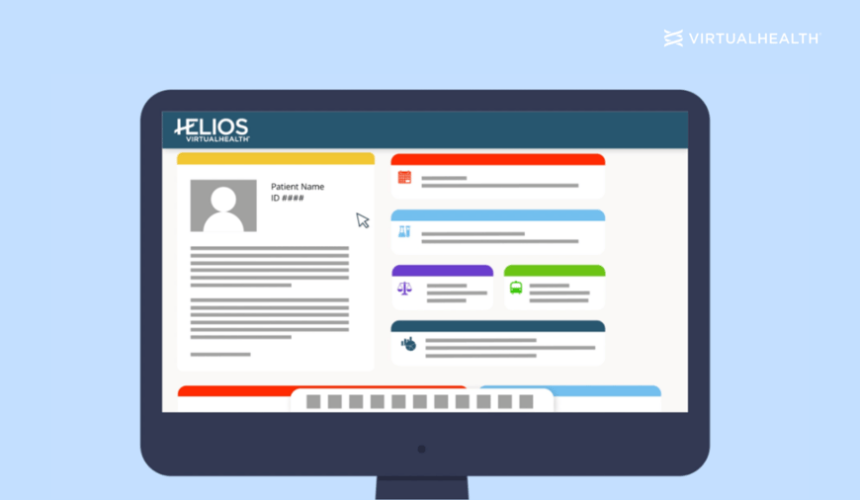This is the final article in a six-part series exploring ways to improve the delivery of whole-person, value-based care to Medicare and Medicare Advantage populations. In this post, we cover care management strategies to improve the experience for members who receive home health care services. You can also download our white paper Effectively Managing Medicare Populations: 6 Focus Care Areas to get more information and insights about other areas to improve for Medicare plan members. A significant number of Medicare enrollees require one or more home health services. This may include part-time, medically necessary nursing care, physical therapy, occupational therapy, speech-language therapy,...

How to Improve Care for Medicare Advantage Members with Chronic Conditions
This is the fourth article in a six-part series exploring ways to improve the delivery of whole-person, value-based care to Medicare and Medicare Advantage populations. In this post, we explore strategies to deliver whole-person care for Medicare members with chronic conditions, aiming to improve outcomes and quality of life. You can also download our white paper Effectively Managing Medicare Populations: 6 Focus Care Areas to get more information and insights about other areas to improve for Medicare plan members. According to 2020 data from the Chronic Conditions Data Warehouse (CCW), nearly 32 million Medicare beneficiaries had a chronic condition. And a majority of...

How to Better Address SDOH for Medicare Members
This is the fifth article in a six-part series exploring ways to improve the delivery of whole-person, value-based care to Medicare and Medicare Advantage populations. In this post, we explain how to tackle challenges related to social determinants of health (SDOH) that can prevent members from experiencing optimal clinical outcomes. You can also download our white paper Effectively Managing Medicare Populations: 6 Focus Care Areas to get more information and insights about other areas to improve for Medicare plan members. Healthcare leaders increasingly are recognizing how critical it is to address and incorporate social determinants of health (SDOH) into value-based care models...

Automated Prior Authorization Integration within HELIOS is New Opportunity for Payers
Expedite Patient Care and Reduce the Burden Between Payers and Providers with Edifecs Automated Prior Authorization Solution Prior authorization has long been a burden across the healthcare industry, impacting payers, providers, and patients alike. Although a well-intended tool for utilization management (UM), prior authorization has often come under fire for creating extra red tape, resulting in friction between healthcare payers and providers as well as delays in patient care. For years, clinicians have decried the prior authorization process as burdensome and inefficient, with physicians and their staff spending as many as 13 hours per ordering physician per week on request, according...

How Can You Deliver Value-Based Care that Engages Seniors?
This post is the first in a five-part series highlighting top insights from our white paper, Personalized Value-Based Care: Effective Multi-Generational Care Management Strategies. Addressing generation-specific attitudes, concerns, and preferences regarding healthcare, as well as non-clinical factors that impact health like social determinants of health (SDOH), is integral to member engagement and better outcomes. In this blog, we explore the Senior generation – many of which are members of Medicare (Original Medicare or Medicare Advantage, as well as possibly Medicare Part D prescription drug plans), and may also have Medicaid, TRICARE and/or VA benefits. What Makes Seniors Unique When It Comes to Healthcare?...

Can Patient Education Improve Care Plan Compliance and Health Outcomes?
The impact of health knowledge and what care managers can do to improve health literacy in 2023 In October 2022, VirtualHealth discussed the rising importance of health literacy with Christy Calhoun, MPH, Chief Content Officer, Healthwise, and our own Lori Coates, N-BC, CCM, CCTM, Director of Population Health and Value-Based Care Solutions. Here, we further explore the benefits of improving health literacy through patient education, highlighting some key learnings from our recent conversation with Christy and Lori. “Taking care of your health is a challenge for all of us. But having access to accurate, engaging health education is such a...

How We Support Value-Based Partnerships Between Payers & Providers
The term “payvider” isn’t new. It’s part of the inspiration behind our HELIOS platform – to enable and support value-based partnerships between payers and providers. But in recent years, the desire of health systems to become involved in risk management has increased. A survey in 2021 found that nearly 60% of health systems aimed to become payviders by getting into risk-based Medicare Advantage payment models by 2022. It also found that these systems were looking to diversify their risk-based payment strategies by opting for: – Commercial employer-based risk contracts – Medicare payment models – Managed Medicaid –...

Why is Health Literacy Essential to Improve Health Outcomes and Health Equity?
A discussion with leading experts in health education and care management Due to the rising importance of health literacy to improving individuals’ health outcomes and well-being, as well as eliminating health disparities and achieving health equity, VirtualHealth sat down with Healthwise Chief Content Officer Christy Calhoun, MPH, and our own Director of Population Health and Value-Based Care Solutions Lori Coates, RN-BC, CCM, CCTM. Below we provide a quick update on health literacy in the United States and then dive in with Christy and Lori to discuss the value of health literacy in improving health equity and outcomes and look at...

Improve Medicare Advantage Member Engagement with HELIOS
Member engagement is about more than higher Medicare Star Ratings and keeping member bases loyal. A highly engaged health plan member is one who is actively involved in their health and wellness, and one who is more likely to adhere to care plan instructions, treatment, and medication regimens, and prioritize improving their overall state of health and well-being. Today, Medicare beneficiaries are mostly made up of Seniors and Baby Boomers. These two generations have some similarities in their preferences for healthcare (how health and related communications and experiences are delivered and received) but some distinctions exist. [Get specific insights on both generations’ unique care preferences, SDOH concerns,...

Developing the Future of Care
Q&A with CEO and Founder Adam Sabloff and Vice President of Product Management Marcus Caraballo. The healthcare industry is evolving. As more and more organizations seek to implement a value-based care approach, many are realizing the importance of data interoperability, whole-person health, and the need to address and solve for social determinants of health (SDOH). To get the inside scoop on how VirtualHealth is addressing these challenges in 2023, we sat down with CEO and Founder Adam Sabloff and Vice President of Product Management Marcus Caraballo. VH: VirtualHealth has been working on a lot of innovation lately, but what’s coming...


